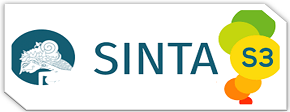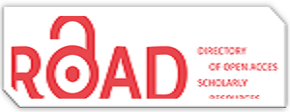Analisis Implementasi Model Kepemimpinan Profetik Di Perguruan Tinggi Muhammadiyah (Studi Kasus Universitas Muhammadiyah Semarang)
DOI:
https://doi.org/10.30587/jurnalmanajerial.v10i02.5048Keywords:
Prophetic, Leadership, Good, University, Governance, WorshipAbstract
Background - The concept of the Islamic leadership model cannot be separated from the leadership that has been carried out by the Prophets and Messengers of Allah SWT. This leadership model is often referred to as prophetic leadership. Muhammadiyah University Semarang (Unimus) is one of the Muhammadiyah Colleges based on Islamic education that has experienced very rapid progress. This is related to the leadership factor.
Aim - Knowing the views and implementation of the prophetic leadership model at the Muhammadiyah University of Semarang
Design / methodology / approach - Field research (field research) with qualitative methods. Collecting data with literature study, interviews, observation and documentation. As for data analysis with reduction, presentation and withdrawal of data conclusions with validity techniques using data triangulation.
Finding - Unimus leadership in carrying out university development programs, one of which is the midnight prayer movement for the academic community. This program is believed to be an inner and outer endeavor. The view of prophetic leadership is in line with the application of the principles of Good University Governance (GUG), namely Shidiq (Honest), Amanah (Accountable), Tabligh (Transparency) and Fathonah (visionary). the principle of The Right Man in The Right Place. Aspects of liberation regarding work and applying the principles of asah, compassion and care and aspects of transcendence regarding worship activities (Islamic spirit) in Unimus
Conclusion - The views and implementation of prophetic leadership have been carried out well within the Unimus academic community. The implementation of 3 aspects, namely the aspects of humanization, liberation and transcendence are defined as work, work and worship.
Research Implications - This research is an overview of prophetic leadership that has been carried out and can be used as a reference in the development of other tertiary institutions.
Limitations - The scope of this research is still limited to Unimus where the number of PTM/A in Indonesia is 172 and it is still qualitative in nature so it needs to be on a larger scale and in the form of quantitative research.
References
Al-Ashbahiy, Malik Bin Anas Abu Abdullah. 1991. Al- Muwaththa Imam Malik. Damasqus:Darul Qalam.
Al-Quran dan terjemahannya, Mujam-ma' al-malik Fahd Li Thiba'at Al-Mushhaf Asy-Syarif Medinah Munawwaroh P.O. BOX 6262 Kerajaan Saudi Arabia.
Antonio, Muhammad Syafi‟i. 2007. Muhammad SAW: The Leader Suoer Manager. Jakarta: Tazkia Multimedia & ProLM Center. Al-Quran dan terjemahannya, Mujam-ma' al-malik Fahd Li Thiba'at Al-Mushhaf Asy-Syarif Medinah Munawwaroh P.O. BOX 6262 Kerajaan Saudi Arabia.
Hadi, I. A. 2019. Pemikiran KH. Ahmad Dahlan Tentang Pendidikan Islam di Indonesia. Jurnal Inspirasi.
Husna, Faqiyatul. 2017. Kepemimpinan Islami dalam Meningkatkan Mutu Lembaga Pendidikan Islam. Jurnal Misykat Vol.2 No.2 Desember 2017.
Ismail, I. 2020. Konsep Pendidikan KH. Ahmad Dahlan. Jurnal Al-Qalam: Jurnal Kajian Islam dan Pendidikan. https://doi.org/10.47435/al-qalam.v6i1.118
Kuntowijoyo. 1989 Ilmu Sosial Profetik, UQ, Vol. 1 No.1/1989.
Kuntowijoyo. 1994. Al-Quran sebagai Paradigma. Jurmal Ululumu, Jurnal Ulumul Quran No. 4 Vol, No V.
Kuntowijoyo. 1991. Paradigma Islam: Interpretasi untuk Aksi. Editor: A.E. Priyono. Bandung: Mizan
Machfudz. 2020. Model Kepemimpinan Kiai Pesantren. CV. Pustaka Ilmu Group: Yogyakarta Moleong, Lexy J.2010. Metodologi Penelitian Kualitatif, edisi revisi. Bandung: PT. Remaja Rosdakarya.
Mukhtarom, A. 2015. Menelusuri Rekam Jejak Amal Dan Perjuangan Kh. Ahmad Dahlan. Jurnal Dinamika UMT.https://doi.org/10.31000/dinamika.v1i1.485
Nuris, A. 2017. Ahmad Dahlan Dan Pesantren: Gerakan Pembaharuan Pendidikan, Dakwah dan Pemberdayaan Masyarakat Di Indonesia. Dirosat : Journal of IslamicStudies.https://doi.org/10.28944/dirosat.v1i2.15
Partanto, Pius A dan M. Dahlan AlBarry. TT. Kamus Ilmiah Populer. Surabaya:Arkola.
Pamungkas, Oktri dkk. 2021. Model Kepemimpinan Profetik KH. Ahmad Dahlan Dalam Pendidikan Islam. MASALIQ: Jurnal Pendidikan dan Sains Vol.5 No. 3
Peraturan Pimpinan Pusat Muhammadiyah Nomor 01/PRN/I.0/B/2012 tentang Majelis Pendidikan Tinggi
Subagja, Soleh. 2010. Paradigma Nilai-Nilai Kepemimpinan Profetik (Spirit Implementasi Model Kepemimpinan di Lembaga Pendidikan Islam. Jurnal Progresiva Vol.3 No.1 Januari-Juni 2010
Sugiyono, 2015. Memahami Penelitian Kualitatif. Bandung:CV. Alfabeta.
Undang-Undang No.20 Tahun 2003 tentang Sistem Pendidikan Nasional
Wijatno, S. 2009. Pengelolaan Perguruan tinggi secara efisien, efektif, danekonomis untuk meningkatkan mutu penyelenggaraan pendidikan dan mutu lulusan. Penerbit Salemba Empat.
Zuhri. 2020. Kepemimpinan Profetik di Era 4.0. Jurnal Samiliya Vol. 1 No.1 Maret 2020






























 P-ISSN: 2354-8592 __ E-ISSN: 2621-5055
P-ISSN: 2354-8592 __ E-ISSN: 2621-5055 
